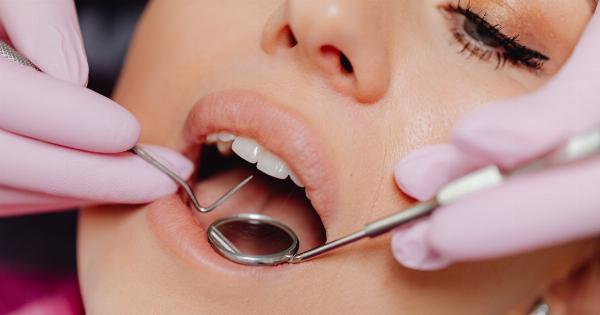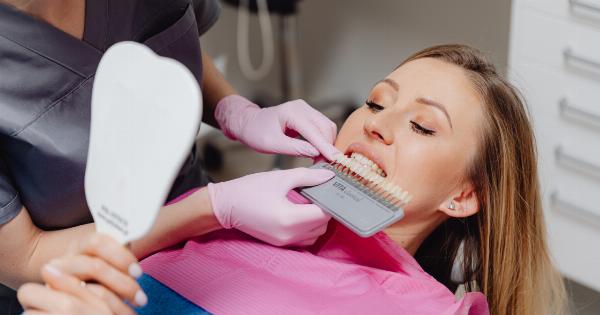Pregnancy is a period filled with joy and excitement for expectant mothers, but it is also a time when hormonal changes can lead to various health issues.
One such issue that is commonly experienced by pregnant women is gingivitis, an inflammation of the gums. While gingivitis can occur in anyone, it is particularly prevalent during pregnancy due to the hormonal shifts that take place.
In this article, we will explore the link between pregnancy and gingivitis, understanding its causes, symptoms, and treatment options.
The Hormonal Impact on Oral Health
Pregnancy triggers a surge in hormones, particularly estrogen and progesterone, which can have a significant impact on oral health. These hormonal changes increase blood flow to the gum tissue, making them more sensitive and susceptible to inflammation.
Additionally, these hormones affect the body’s response to the bacteria that is naturally present in the mouth. As a result, pregnant women are at a higher risk of developing gingivitis.
Causes of Pregnancy Gingivitis
While hormonal shifts are primarily responsible for the increased risk of gingivitis during pregnancy, other factors can contribute to its development.
Poor oral hygiene practices, such as irregular brushing and flossing, can create an environment conducive to bacterial growth and plaque formation. Additionally, dietary changes and cravings during pregnancy can also impact oral health. Increased consumption of sugary and acidic foods can further exacerbate gum inflammation.
Common Symptoms
Gingivitis during pregnancy can manifest through various symptoms, including:.
- Swollen, tender, or red gums
- Bleeding gums during brushing or flossing
- Gum recession or gum pockets
- Bad breath
- Increased tooth sensitivity
It is important to understand that gingivitis can vary in severity, with some cases being mild while others may require immediate attention.
Regular dental check-ups are essential to identify and monitor any oral health issues, especially during pregnancy.
The Impact of Gingivitis on Pregnancy
While gingivitis may seem like a minor oral health concern, its impact can extend beyond the mouth, especially for pregnant women.
Research suggests a correlation between gum disease and adverse pregnancy outcomes, such as preterm birth and low birth weight. The bacteria and inflammation associated with gingivitis can potentially enter the bloodstream, triggering an immune response that may affect the developing fetus.
Furthermore, gum disease during pregnancy has also been linked to an increased risk of gestational diabetes and preeclampsia.
Prevention and Treatment
Preventing and managing pregnancy gingivitis is crucial for the well-being of both the mother and the baby. Here are some preventive measures and treatment options:.
- Practicing Good Oral Hygiene: Brushing the teeth at least twice a day with a soft-bristled toothbrush and fluoride toothpaste, as well as flossing daily, helps remove plaque and maintain oral health.
- Regular Dental Check-ups: Scheduling routine dental visits ensures early detection and timely treatment of any oral health issues.
- Proper Nutrition: A balanced diet that is low in sugary and acidic foods can help prevent gum inflammation.
- Using Antimicrobial Mouthwash: Using an antimicrobial mouthwash recommended by the dentist helps reduce bacteria in the mouth.
- Professional Dental Cleaning: Dental cleanings are safe during pregnancy and can remove plaque and tartar buildup, reducing the risk of gingivitis.
- Managing Stress: Stress can worsen gum inflammation, so practicing relaxation techniques and stress management can contribute to oral health.
- Medication and Surgical Intervention: In severe cases, dentists may prescribe antimicrobial or antibiotic treatments or perform dental procedures to address advanced gum disease.
Conclusion
Pregnancy gingivitis is a common condition that affects many expectant mothers due to hormonal changes and other contributing factors. Understanding the link between pregnancy and gingivitis is essential for proactive prevention and timely treatment.
By maintaining good oral hygiene practices, seeking regular dental care, and adopting a healthy lifestyle, expectant mothers can minimize the risk of developing this oral health condition and promote the overall well-being of both themselves and their babies.





























